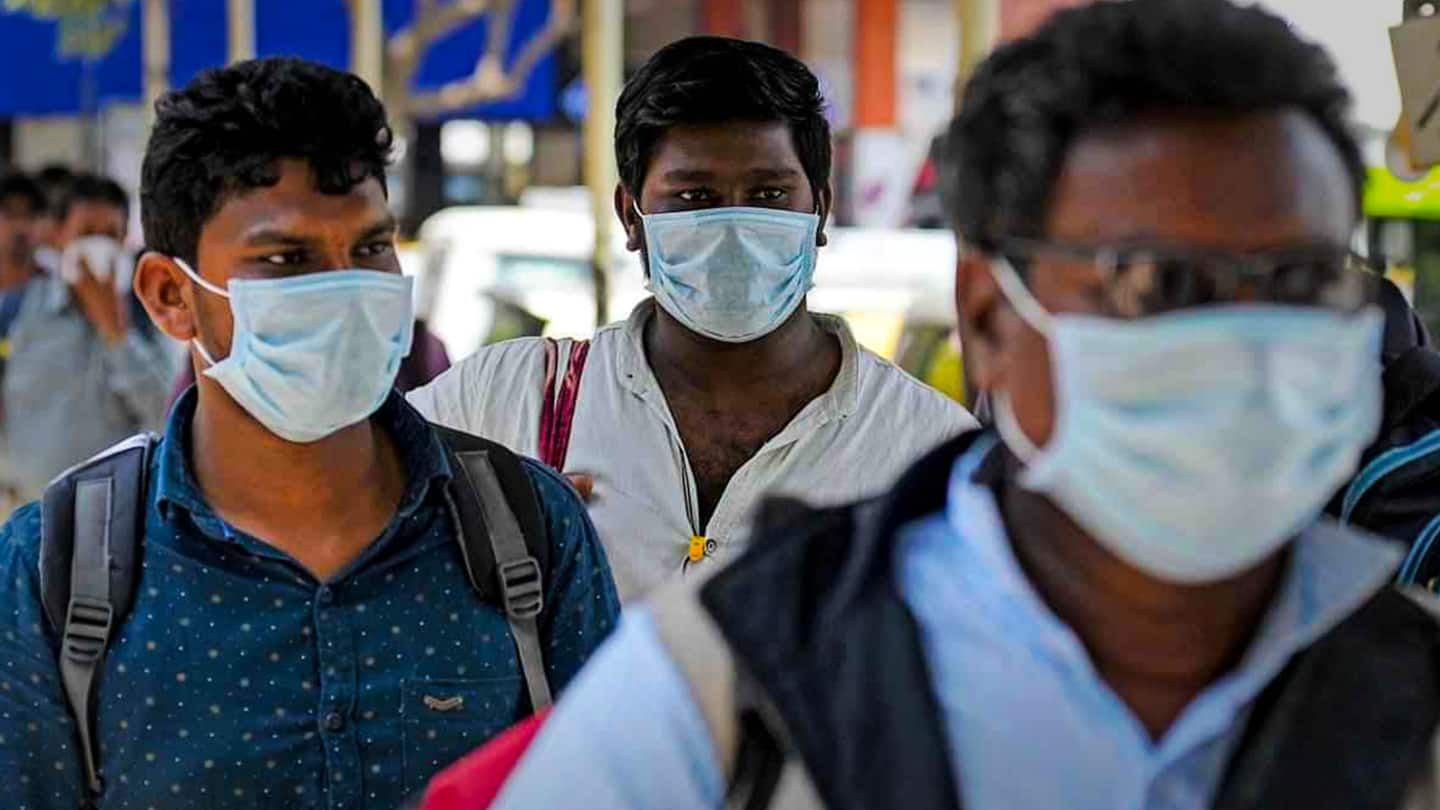
ICMR revises testing guidelines; dos and don'ts for RT-PCR tests
What's the story
In the wake of the upsurge in COVID-19 cases, the Indian Council of Medical Research (ICMR) on Tuesday issued new testing guidelines in a bid to reduce pressure on overburdened diagnostic laboratories across the country.
The apex health research body said an "RT-PCR test must not be repeated in any individual who has tested positive once either by RAT (rapid antigen testing) or RT-PCR."
Eligibility
Discharged COVID-19 patients, 'healthy' travelers must not be tested
RT-PCR test must not be repeated for anyone who has tested positive once either by RAT (rapid antigen testing) or RT-PCR, the guidelines said.
Recovered patients who have been discharged from hospitals need not undergo another round of testing.
"Healthy" inter-state travelers must not be tested. Asymptomatic travelers must adhere to COVID-appropriate behavior.
Non-essential travel of people with COVID-19 symptoms should be avoided.
Information
State governments asked to remove negative report requirement for travelers
"The need for RT-PCR test in healthy individuals undertaking inter-state domestic travel may be completely removed to reduce the load on laboratories," the ICMR said. Presently, states such as Maharashtra, Karnataka, and West Bengal insist on mandatory RT-PCR negative reports before allowing incoming travelers.
RAT facilities
ICMR recommends bringing back focus on Rapid Antigen Testing
The ICMR recommended the upscale of testing using RATs and stated that it may be conducted at government/private healthcare facilities, schools, colleges, community centers, and available vacant spaces.
It added that dedicated RAT booths may be set up in villages, towns, and cities to offer 24x7 testing facilities to residents.
Drive-through RAT facilities may also be created with the aid of local administration.
Information
RATs currently limited, offer advantage of early detection of cases
The use of RATs is presently limited to containment zones and healthcare facilities. These tests have a short turnaround time of 15-30 minutes. Hence, they offer a massive advantage of quickly detecting COVID-19 cases, thus providing the opportunity to isolate patients early and curbing transmission.
Eligibility
Who should opt for RT-PCR tests?
Symptomatic individuals identified negative for COVID-19 by RATs should be linked to RT-PCR facilities and be urged to practice home isolation in the meantime, the ICMR stated.
However, the ICMR has recommended no RT-PCR tests if one has completed a 10-day home isolation period with no fever for the last three days.
It said testing-tracking-tracing, isolation, and home-based treatment is key for curbing transmission.
Information
Symptomatic individuals to be considered suspect cases of COVID-19: ICMR
According to the ICMR, any individual presenting with fever (with or without cough), headache, sore throat, breathlessness, body ache, the recent loss of taste or smell, fatigue, and diarrhea should be considered as a suspect case of COVID-19 unless proven otherwise.
COVID-19 testing
Mandatory for individuals to mention vaccination status in testing forms
The ICMR has made it mandatory to enter the information of an individual's vaccination status in the Sample Referral Form (SRF) in the RT-PCR application, both for individuals tested by RT-PCR and RAT.
"This information is of critical importance," said the guidelines.
The directive comes in view of several people testing positive for COVID-19 after one or both doses of the vaccines.
Mounting pressure
Laboratories facing challenges due to extraordinary caseload, says ICMR
India's daily testing capacity in its 2,506 molecular testing laboratories stands at 15 lakh. However, it is taking over 72 hours to process one RT-PCR test now.
"Laboratories are facing challenges to meet the expected testing target due to extraordinary caseload and staff getting infected...It is imperative to optimize RT-PCR testing and simultaneously increase access and availability of testing," the ICMR said.